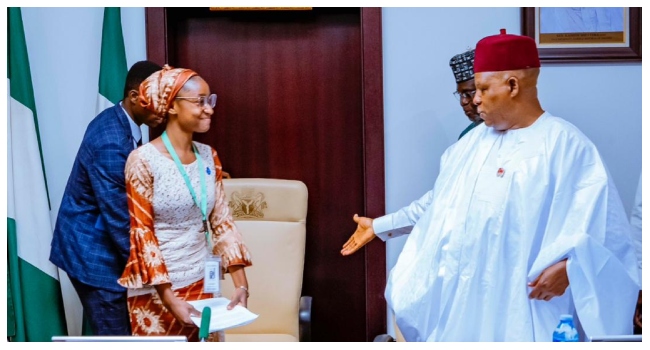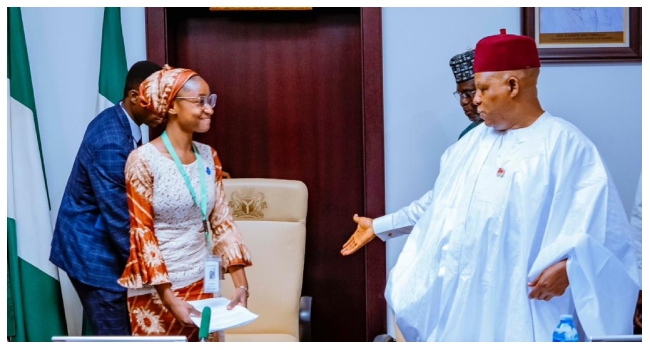VP Kashim Shettima Steps Aside As Teenager Joy Ogah Becomes ‘Vice President for a Day’

Vice President Kashim Shettima on Monday vacated his seat to allow a teenage girl, Joy Ogah, preside as Vice President for a day at the Presidential Villa, Abuja.
This happened during a courtesy visit by PLAN International.
Shettima described it as part of the Tinubu-led administration’s commitment to promoting girl-child education and gender equality in Nigeria.
While hosting the delegation led by PLAN International’s Director of Programme, Quality, and Innovation, Helen Idiong, Vice President Shettima reaffirmed the federal government’s support for initiatives that uplift young girls and ensure access to quality education, Channels reported.
“In President Bola Tinubu, you have an ally you can believe in and invest your trust in,” he said, assuring the group that the government’s policies would continue to prioritise inclusivity and empowerment.
He also praised the First Lady, Senator Oluremi Tinubu, describing her as “a symbol of how a properly empowered and supported girl-child can blossom into a great leader.”
According to him, “We cannot disenfranchise half of our population and expect to grow as a nation.”
After his remarks, the Vice President handed over his seat to Joy Ogah, who used the platform to deliver a moving address calling for greater support for girls across Nigeria.
Speaking from the Vice President’s chair, Joy urged the government, development partners, and citizens to ensure equal access to education, free sanitary products in schools, and better facilities for water and nutrition.
She expressed concern that 10.5 million Nigerian children remain out of school, with over 60 percent of them being girls.
“We must invest in education that is safe and inclusive for every child in Nigeria. When girls are protected, peace becomes possible,” she said.
In closing, Joy added: “I may be the Vice President for a day, but the struggles I represent cannot end in a day. They must continue in our policies, our classrooms, our conversations, and our budgets.”
